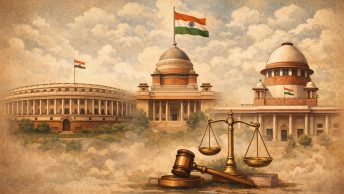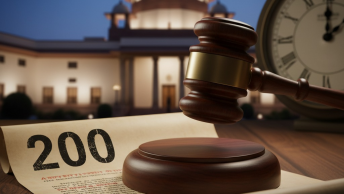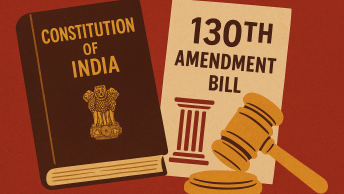Introduction
The Tenth Schedule was designed to bring stability to parliamentary democracy by restricting political defections. Yet, decades later, its enforcement continues to depend on a figure who often has a direct political stake in the issue: the Speaker of the House. This is a flaw in the design that has allowed the Speakers in various jurisdictions to either delay disqualification proceedings until after a new government had been formed on the support of defectors, simply refuse to entertain such petitions, or even ignore disqualification petitions altogether, providing a window for defectors to enjoy amnesty, at least temporarily, while the law looks away.
This situation is far from hypothetical. In the case of Keisham Meghachandra Singh v. Speaker, Manipur Legislative Assembly, the Court had to intervene in Manipur when disqualification petitions had remained unheard of for months. In Rajendra Singh Rana v. Swami Prasad Maurya, the then Speaker of the Uttar Pradesh Assembly delayed sitting on petitions while a government was being formed on the support of defectors. And now, in the Padi Kaushik Reddy v. State of Telangana ruling delivered by the Supreme Court on 31 July 2025, the malaise has manifested itself again, almost formulaically. The Speaker, despite his clear constitutional obligation to act, held back from initiating disqualification proceedings for a period exceeding eleven months.
The pattern is familiar; the deeper question remains as to what role the judiciary must play when constitutional actors sit on their hands. This piece argues for a structured, principled enlargement of judicial oversight, not to hear defection cases on their merits but rather to guarantee that the Speaker’s procedural obligations are enforced. When judicial supervision is limited to the process as opposed to the outcome, it sets the balance straight for a mechanism that is otherwise vulnerable to strategic delay. This proposal is set against the backdrop of the concept of an independent tribunal floated by the Court in Keisham, and in the end, it defends itself as a more immediate and constitutionally satisfactory solution.
Judicial Oversight as a Structural Fix
It is an accepted understanding of judicial review under Articles 226 and 227 of the Constitution that, in the refusal of a constitutional authority to act, the writ court may enforce its performance. In Rajendra Singh Rana, the principle was articulated when the Supreme Court said that the Speaker “failed to exercise the jurisdiction vested in him” by refusing to entertain disqualification petitions. The Court did not encroach; rather, it reaffirmed that inaction, standing in the way of realization of a constitutional provision, may be subjected to review just as much as an erroneous action.
A similar situation arose in Padi Kaushik Reddy, wherein for eleven months plus, the Court was called upon to consider the Speaker’s refusal to even begin disqualification proceedings despite petitions having been filed, and public offices being continuously held by defectors. The Court refrained from issuing binding directions but stated that the Speaker’s conduct was considered “lackadaisical”, warning that such inaction might well amount to playing “a fraud on democracy.”
These cases present the judiciary’s slow progression in accepting that the Speaker’s procedural passivity is not neutral at all, that it has significant consequences. It can distort election mandates and freeze accountability, making engineered majorities that much easier to rule without any checks. Being a constitutional authority, the Speaker cannot, therefore, be free of constitutional blame.
Hence, courts must regard an egregious delay in disqualification proceedings not as a political choice but as a constitutional failure. The issue before the court is not whether the disqualification is justified; rather, it is whether there exists any process at all. Mandamus, narrowly and almost exclusively, may be the instrument to enforce the performance of the Speaker without issuing a direction as to how he should decide.
The process emphasis has the potential to breathe life into the declaration that no constitutional authority is above the Constitution, even if one is conferred with procedural autonomy inside the House.
Judicial Oversight Does Not Infringe on Separation of Powers
The primary objection is that judicial intervention in disqualification matters constitutes a breach of the doctrine of the separation of powers. This view is premised on the assumption that the Speaker is a high constitutional office and courts must never come in the way of the legislature while it conducts its own internal proceedings. This position may find support from Kihoto Hollohan v. Zachillhu, wherein the Court held, in strict terms, that judicial review would only lie after a decision is made, not before it.
But such a premise has since been frittered away. Kihoto was entered into befitting an era when delay was considered exceptional. Today, delays are often the norm. The Kihoto judgment said that mala fides and jurisdictional errors would be grounds for intervention. When Speakers sit on their hands for months, sometimes years, the inaction born is not a mere procedural delay; it becomes a deliberate constitutional evasion.
This is precisely what the Court acknowledged in Rajendra Singh Rana when it held that a failure to exercise jurisdiction is itself a justiciable wrong. This is also what happened again in Padi Kaushik Reddy, where there were no hearings, no notices issued, and the office of the Speaker functioned more as a shield than a tribunal.
Some maintain that such oversight threatens institutional comity. But courts have crossed this bridge in other contexts as well. In State of Tamil Nadu v. Governor of Tamil Nadu, the Supreme Court pronounced the Governor’s delay in assenting to bills to be “illegal and erroneous“ and stipulated a reasonable timeframe for action. The analogy is direct: just as a Governor cannot withhold assent indefinitely, neither can a Speaker use procedural discretion to indefinitely postpone the resolution of disqualification petitions.
What the Court had to say about the Governor as acting “catalysts, not inhibitors“ applies equally to the Speaker. Thus, judicial review in both scenarios ensures not that the authority decides in a particular manner, but that it does decide.
An Independent Tribunal is an Ineffective Alternative
The Speaker’s seemingly deliberate inaction has naturally induced structural reforms to be advocated. Chief among these is the establishment of an independent tribunal to decide disqualification petitions, an idea that was raised in paragraph 30 of Keisham Meghachandra Singh. At first glance, the setup seems attractive. It promises an impartial decision mechanism that exists outside the run of politics through the removal of a politically aligned Speaker from the adjudicatory role. However, two serious limitations thwart the proposal: one constitutional, and the other practical.
First, setting up an external body to decide legislative membership matters would require a significant constitutional amendment. While paragraph 6 of the Tenth Schedule vests this power in the Speaker, such a structure has been upheld in Kihoto Hollohan. Installing a tribunal in place of the Speaker will change the separation of powers by externalizing a function which ought to be exercised within the legislative framework.
Second, the tribunal model does not remove partisanship; rather, it simply changes its place. If the executive influences appointments to the tribunal, then the tribunal could be used as an instrument by political majorities, thus giving rise to the same concerns that the model sought to eliminate.
A related suggestion, discussed in paragraphs 5.20-22 of the 170th Law Commission Report, recommends vesting the power of disqualification with the President (for Parliament) or Governor (for State Legislatures), acting in binding terms on the advice of the Election Commission. While this model attempts to work through the constitutional authority and preserve institutional neutrality, the model, too, is vulnerable. The offices of the President and Governor, though intended to be non-partisan, work in the political arena and are often partisan towards the central executive. In politically contentious cases, the involvement of the President and the Governor could lead to allegations of executive interference, especially when the ruling party controls both the Legislature and the appointing authority. Rather than protecting the process, the arrangement might serve to merely substitute one set of political incentives for another without providing the key solution of timely neutral decision-making.
Judicial oversight is therefore a corrective, not an absolute measure. It works within the constitutional scheme as it exists, respects the Speaker’s role, and limits itself to stopping abuses of process. Judicial oversight targets the specific constitutional pathology, that is, the deliberate delay, without having to dismantle the whole institutional structure. It is, therefore, a less drastic and more constitutionally elegant response to the deep-seated problem at hand.
Conclusion
The continued inaction of Speakers in disqualification cases reveals a severe constitutional lacuna. The Tenth Schedule endows the Speaker with substantial powers but affords little in checking misuse of power, or worse, non-execution thereof. As such, from the records in Keisham, Rajendra Singh Rana, and now Telangana, the price of inaction is very real: it has kept governments alive by contrived majorities, has kept defections away from scrutiny, and has dented public confidence in the rule of law.
This is not a call for judicial overreach. This is a call for judicial presence, courts holding constitutional authorities to constitutional duties. Such presence can be modest: requiring notices, requiring hearings, requiring reasons. Such modest oversight is better than nothing. The Court has already acknowledged that logic elsewhere. In State of Tamil Nadu v. Governor of Tamil Nadu, it was held that delay on the part of a constitutional actor may also be judicially reviewed, more so when it threatens to paralyse democratic outcomes. This standard must now be applied to the Speaker under the Tenth Schedule.
Discussions on reforms, such as an independent tribunal, have to be given due consideration as they might take years to come into being, most probably requiring constitutional amendments. Until then, the judiciary remains the only available actor that can ensure disqualification proceedings are not held hostage to political convenience.
Shivank Yadav is a third-year law student at National Law University, Delhi.
[Ed Note: The piece is edited by Hamza Khan and published by Vedang Chouhan]







Your blog is a treasure trove of valuable insights and thought-provoking commentary. Your dedication to your craft is evident in every word you write. Keep up the fantastic work!
Your ability to distill complex concepts into digestible nuggets of wisdom is truly remarkable. I always come away from your blog feeling enlightened and inspired. Keep up the phenomenal work!
Thank you for the good writeup It in fact was a amusement account it Look advanced to far added agreeable from you However how could we communicate
Well done, Shivank! Congrats on your first blog, what a strong start. Way to go!